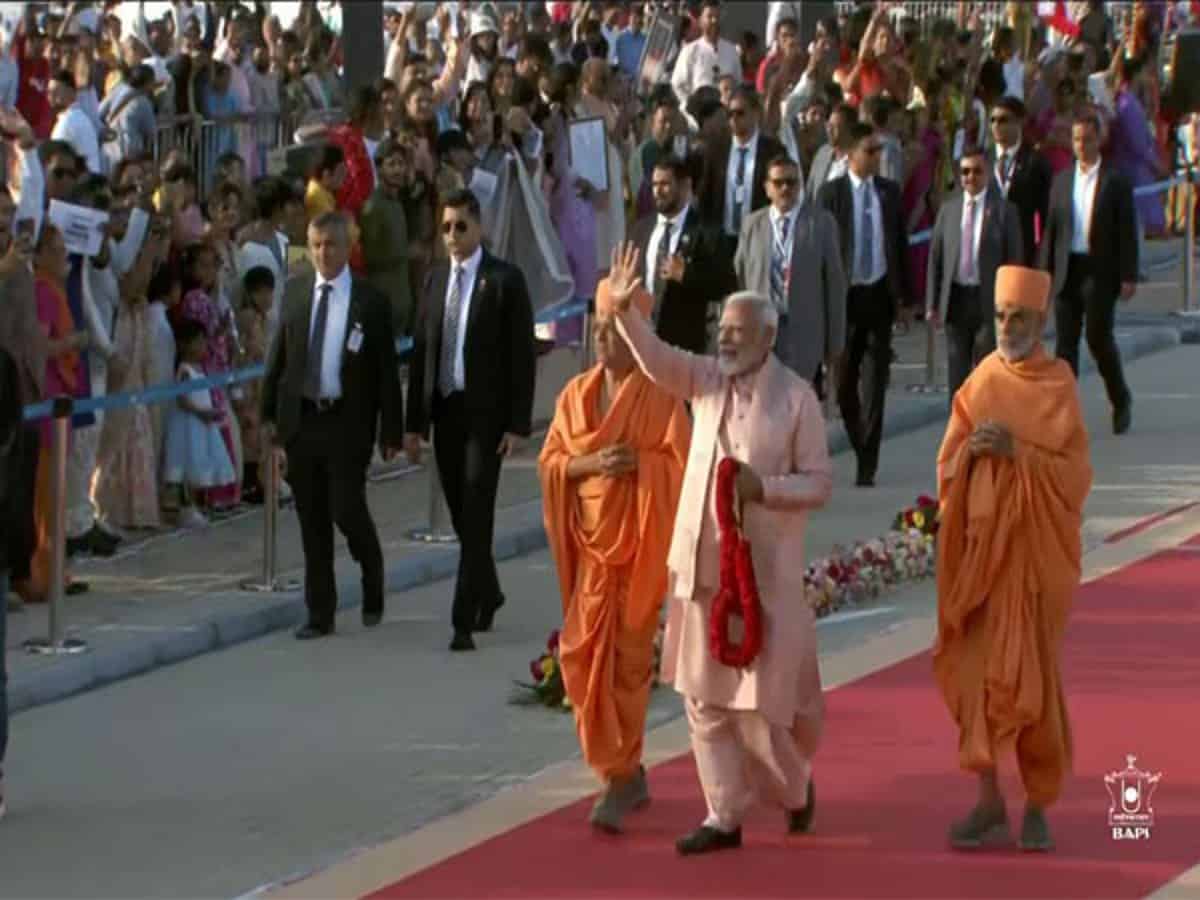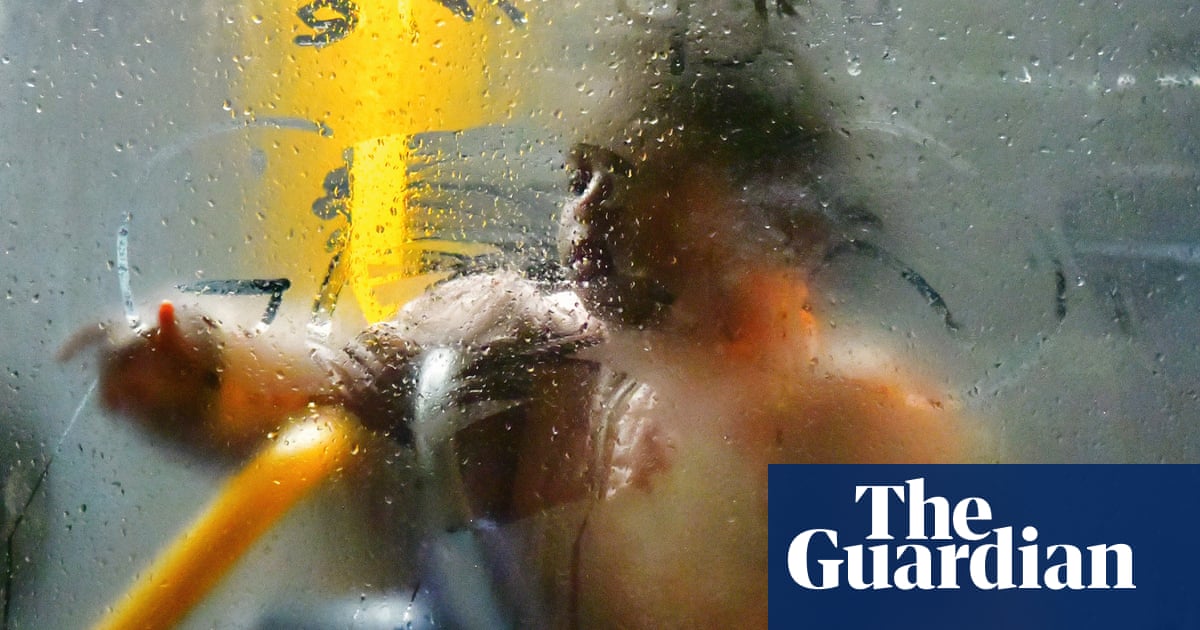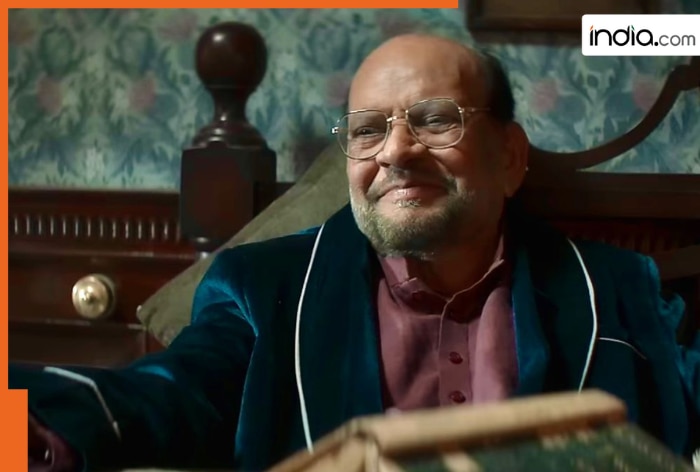Indian Prime Minister Narendra Modi on Wednesday, February 14, inaugurated BAPS Hindu Mandir, the first traditional Hindu stone temple in Middle East region, in United Arab Emirates capital Abu Dhabi.
The development is a significant milestone in cultural and religious diversity, promoting unity and strengthening bilateral relations between India and the UAE.
Mahant Swami Maharaj, the spiritual guru of BAPS Swaminarayan Sanstha, and Narendra Modi opened the BAPS Hindu Mandir with a ribbon cutting ceremony.
The ceremony was attended by thousands of devotees and dignitaries from across the world.
Ahead of its inauguration, the consecration ceremony of the temple was held on Wednesday morning.
It is set to open to the public on February 18, but due to high overseas visitor registration demand, it is recommended for residents to visit from March 1.
Watch the consecration ceremony here
About BAPS Hindu temple in Abu Dhabi
The Bochasanwasi Shri Akshar Purushottam Swaminarayan Sanstha (BAPS) temple has been built with over 300 high-tech sensors to measure temperature and monitor earthquake activity.
No metal has been used in the construction of the temple and fly ash has been used to fill up the foundation, replacing 55 percent of cement in the concrete mix, reducing the carbon footprint of the temple.
It has been built by the BAPS Swaminarayan Sanstha on a 27-acre site in Abu Mreikhah, near Al Rahba off the Dubai-Abu Dhabi Sheikh Zayed Highway, at a cost of around Rs 700 crore.
Standing tall at 108 feet, the BAPS Hindu Mandir is a marvel of engineering and craftsmanship. The temple has been built as per an ancient style of construction and creation mentioned in the Shilpa and Sthapathya Shastras, Hindu scriptures which describe the art for mandir design and construction.
Eighteen lakh bricks, seven lakh man hours and 1.8 lakh cubic metres of sandstone have been used to make the temple. The temple has been made in Nagara style of architecture, just like the recently inaugurated Ram Temple in Ayodhya.
According to Umesh Raja, a volunteer at the temple, 20,000 tonnes of sandstone pieces were carved in Rajasthan and then shipped to Abu Dhabi in 700 containers.
“Not just the stone, many labourers who helped construct the temple over five years belong to Gujarat and Rajasthan. Even the marble mined from Italy was first shipped to India for carving and then back to the UAE to be used in the interiors,” he said, adding that 18 lakh bricks have been used in the construction of the temple.
The colossal structure, adorned with intricate details, can accommodate up to 10,000 people, providing a sacred space for worshippers to come together in prayer and celebration.
PM Modi inaugurated a Hindu temple project in Abu Dhabi, UAE, during his first visit in 2015. The foundation stone was laid in April 2019 and the construction commenced in December 2019. The land for the temple was donated by the UAE government.
Source: With inputs from agencies









